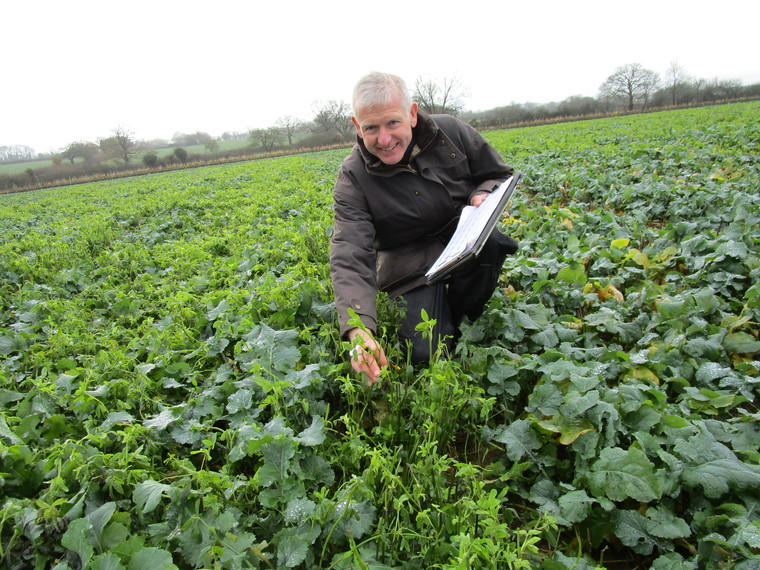Procam Agronomist Hall Charlton who lives and works in Durham says that a few of his interested farmers have tried out companion cropping in oilseed rape. “Companion cropping is when you sow two crops together, with the intention that one will help the main crop to thrive better. It is probably more widespread in the Flea beetle areas in the East and Midlands than here in the Northeast. We have much less flea beetle pressure up here. But we all know that wherever you farm, establishment of oilseed rape is vital to its success. Companion cropping can help rape establish better and can divert away pests such as pigeons and CSFB.”
Hall points out that there is no specific blueprint for a companion crop mixture. “Growers need to try out different mixtures almost on a trial-and-error basis and discover what suits their farm the best. Different components of a companion crop mixture bring different benefits. I would say however that it is probably a work in progress.”
For example, berseem clover is well known for its rooting ability, its fibrous root system conditioning the soil and helping with the rape crops’ rooting ability. It can also supply a mycorrhizal association which rape lacks and so helps with uptake and availability of nutrients. Berseem clover companion crops can help with soil health, soil drainage and structure, through an allelopathic effect and could possibly help to suppress weeds.
Buckwheat (which is from the rhubarb family) is another potential companion crop component and provides quick soil cover, suppressing weeds. Buckwheat can scavenge phosphates from the soil and can act as a distraction canopy to flea beetle down South. Phosphates are mobilised and made more available in the soil. When the temperature falls to below 5°C, buckwheat will die off, being frost sensitive.
Vetches are nitrogen fixing and keep pigeons off the crop by hugging close to the soil, giving a good soil coverage and reducing landing sites. A mix of spring and winter vetches is best since spring vetches rapidly cover the ground in the autumn and winter types keep the pigeons away in January. The vetch companion crop is usually sprayed out around the end of January and will slowly die off over February releasing nitrogen back to the oilseed rape plants throughout the spring.
Fenugreek is also becoming a popular component as it is said to distract adult flea beetles away. This is a personal preference component of Hall’s and is said to have a scent that attracts the beetle over and above the rape crop, so providing diversionary feeding.
“Usually, companion crops are drilled with or just before the rape crop, the same day or close to drilling. Growers can broadcast clover seed mixture into the stubble of the previous crop and roll in. Other crops have larger seed and need to be shallow drilled,” explains Hall.
“Companion crops can mask the attraction that rape has to flea beetle and reduce insecticide and herbicide use. They can reduce pigeon grazing and help with soil conditioning. If using nitrogen fixing crops, such as clover and vetches, more nitrogen can be made available to the rape crop in the spring. Buckwheat can mobilise phosphates. Companion crops can also improve biodiversity by providing flowering crops which attract pollinators and beneficials into the field. Most importantly for rape, they improve its establishment which means it can sometimes outgrow Flea beetle and grow to their potential,” says Hall.
Companion crop dying back after frost




